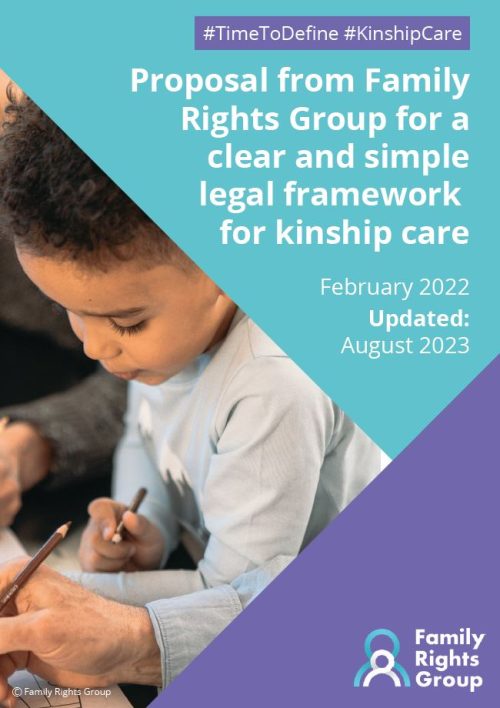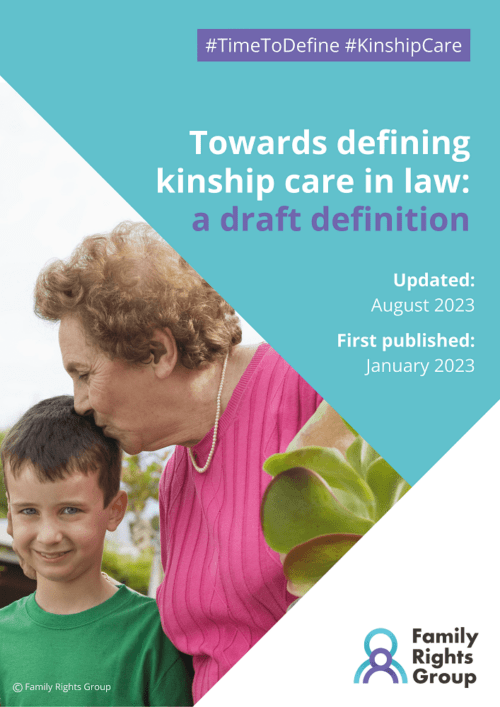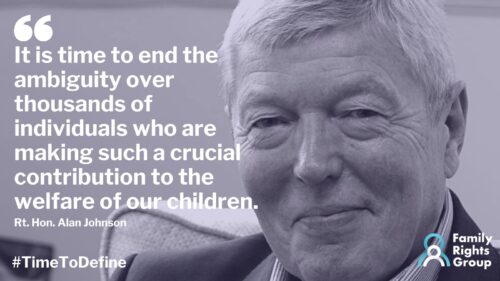By phone or email
To speak to an adviser, please call our free and confidential advice line 0808 801 0366 (Monday to Friday 9.30am to 3pm, excluding Bank Holidays). Or you can ask us a question via email using our advice enquiry form.
Are you a parent, kinship carer relative or friend of a child who is involved with, or who needs the help of, children’s services in England? We can help you understand processes and options when social workers or courts are making decisions about your child’s welfare.
Our advice service is free, independent and confidential.

To speak to an adviser, please call our free and confidential advice line 0808 801 0366 (Monday to Friday 9.30am to 3pm, excluding Bank Holidays). Or you can ask us a question via email using our advice enquiry form.
Our online advice forums are an anonymous space where parents and kinship carers (also known as family and friends carers) can get legal and practical advice, build a support network and learn from other people’s experiences.
Our get help and advice section has template letters, advice sheets and resources about legal and social care processes. On Monday and Thursday afternoons, you can use our webchat service to chat online to an adviser.


Thousands of family and friends step in every year to raise children who are unable to live with their parents. Such situations often arise out of tragedy or trauma. Often the children would otherwise live with strangers in the care system.
Kinship care can take different forms including kinship foster care, special guardianship, child arrangements orders, private fostering or private family arrangements.
Currently, there is no single definition of kinship care in primary legislation. As a result, kinship carers can face many challenges including not being recognised in their parenting role by hospital services, schools, or employers.
It also means kinship care is interpreted in different ways by government, state agencies, services, and the public including kinship carers themselves. Families then face a postcode lottery in the support available to them locally. For many, there is little or no support for the child or themselves, particularly those with informal arrangements.

“Without an agreed definition, kinship carers can quickly run into a myriad of confusion and misunderstanding. At the very moment when the child they are caring for needs stability and support, kinship carers find they are having to constantly explain who they are and what they need.”

“If a legal definition had been in place, my nephew and I would still have had the usual scary experiences of early childhood illness – but we wouldn’t have had the extreme stress and fear that was forced on us because we had no legal status. I know so many carers who have experienced this, and we all felt the same fear and panic.”
A single definition of kinship care must be broad enough to ensure that no kinship carer is left out. It would cover all the different types of kinship care arrangement. It should be applied across national government and all parts of public life at a local level. From school admissions forms to DWP benefits assessments. From the NHS to local authority services.
Meeting the definition could automatically passport kinship carers and their children to a minimum level of support and services. All kinship children, regardless of the type of arrangement they have, should be able to access crucial support to live safely and thrive in their family.
That support should include access to free legal aid and advice, paid employment leave akin to adoption leave, improved financial support, practical help including peer support, and educational and therapeutic support for kinship children.

The proposal has been informed by the views of thousands of kinship carers including members of our kinship carers’ panel and those who contact our specialist national advice service every year. It has also been influenced by research, and the policy and practice insights of Family Rights Group and other members of the Kinship Care Alliance.
Download
Our second paper considers what the legal definition of kinship carers could look like. We have drawn on our unique combination of legal and social work expertise, and direct work with families, to devise this draft definition. Kinship carers from our panel have helped us to think through language and practicalities.
DownloadIn May 2022, the Independent Review of Children’s Social Care adopted our proposal for a new legal definition of kinship care, as part of a “fundamental shift in children’s social care”.
Fast forward to February 2023, the Government published their plans for children’s social care reform, Stable Homes, Built on Love. They consulted on a working definition of kinship care and we encouraged supporters to respond.
Government has since embedded the definition in statutory guidance and the landmark national kinship care strategy:
They have also committed to including it in updated kinship care statutory guidance for local authorities.
The Law Commission has also agreed to carry out a review of the legislative framework in relation to kinship care.
These are all important achievements that put a clear definition of kinship care in to the documents that local authorities and other key agencies working with families are following.
But Government must go further.
To give kinship care the recognition and status it deserves, across society and all the public agencies families come into contact with – the definition must be written into primary legislation.
“We support the recommendation of the review to develop a new legal definition of kinship care, building on work by the Family Rights Group, to ensure that those caring for children in a range of circumstances are able to receive the support they are entitled to.”

“National government should ensure kinship care in all its forms is recognised and understood including in national and local government policy making, by legislating for a universal definition of kinship care. It is time to define kinship care.”
In July 2022, Liberal Democrat MP and Education Spokesperson, Munira Wilson, introduced the Kinship Care Bill in the House of Commons. The Bill would provide a statutory definition of kinship care and make it easier for kinship carers to access support.

Your donation will help more families access expert legal advice and support from Family Rights Group.
Donate Now